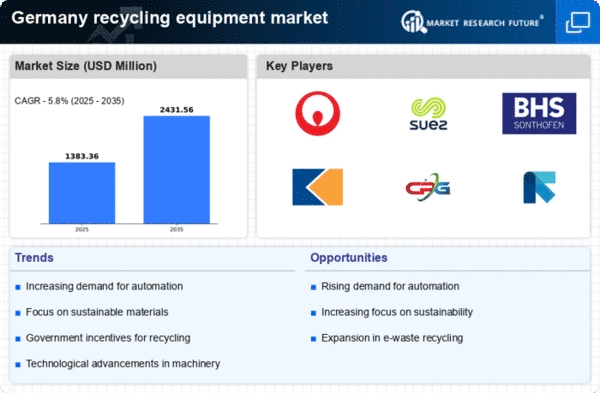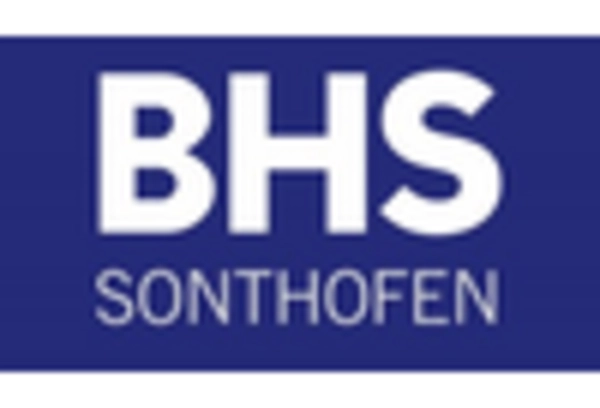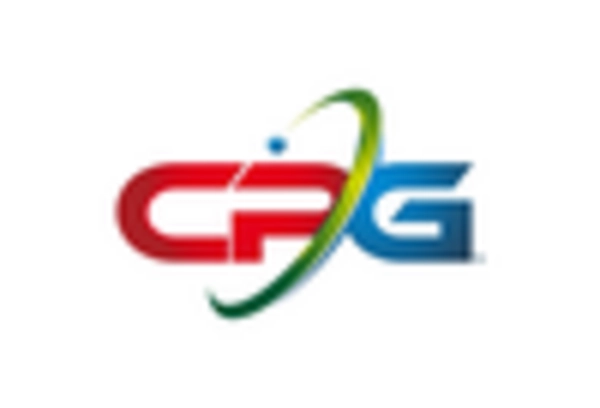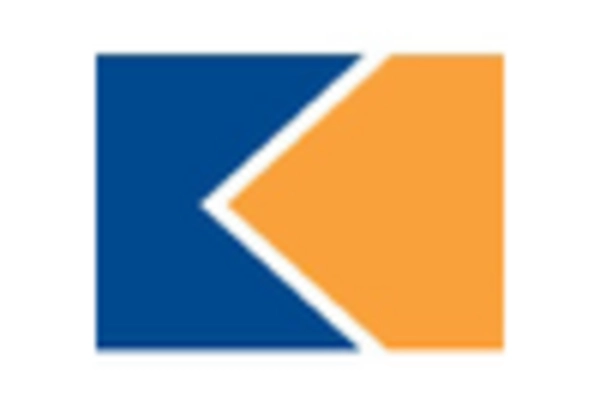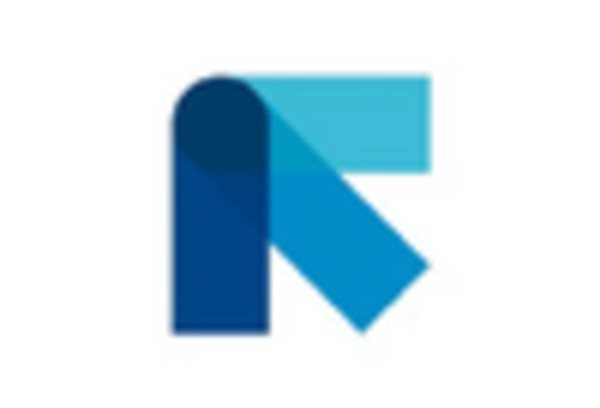Rising Raw Material Costs
The recycling equipment market in Germany is influenced by the rising costs of raw materials, which has led to an increased focus on recycling as a viable alternative. As the prices of virgin materials continue to escalate, companies are recognizing the economic benefits of recycling. This trend is prompting investments in recycling equipment that can efficiently process waste materials into reusable resources. Data suggests that the cost of certain raw materials has risen by over 30% in recent years, making recycling a more attractive option for manufacturers. Consequently, the demand for advanced recycling machinery is likely to grow, as businesses seek to mitigate costs and enhance sustainability practices. This economic pressure is expected to drive innovation within the recycling equipment market, fostering the development of more efficient and cost-effective solutions.
Government Incentives and Funding
The recycling equipment market in Germany benefits significantly from government incentives and funding initiatives aimed at promoting recycling and waste management. The German government has allocated substantial financial resources to support the development and implementation of advanced recycling technologies. For instance, funding programs have been established to assist companies in acquiring state-of-the-art recycling equipment, which can lead to improved operational efficiency. Reports indicate that public funding for recycling initiatives has increased by 25% over the past five years, indicating a strong commitment to enhancing recycling capabilities. This financial backing not only encourages innovation but also ensures that businesses can invest in the necessary equipment to meet regulatory standards and consumer expectations.
Increased Environmental Awareness
The recycling equipment market in Germany is experiencing growth driven by heightened environmental awareness among the populace. Citizens are increasingly cognizant of the ecological impacts of waste and are advocating for sustainable practices. This shift in consumer behavior is prompting businesses to invest in advanced recycling technologies. According to recent data, approximately 80% of Germans support stricter recycling regulations, which in turn stimulates demand for innovative recycling equipment. The market is likely to see a surge in the adoption of machinery that enhances efficiency and reduces waste, aligning with public sentiment towards sustainability. As environmental concerns continue to rise, the recycling equipment market is poised for expansion, reflecting a societal commitment to reducing landfill waste and promoting resource recovery.
Growing Urbanization and Waste Generation
The recycling equipment market in Germany is significantly impacted by the trends of urbanization and increasing waste generation. As urban areas expand, the volume of waste produced is rising, necessitating more efficient recycling solutions. Urban centers are projected to see a 15% increase in waste generation over the next decade, which will likely drive demand for advanced recycling equipment. This scenario presents both challenges and opportunities for the market, as municipalities and businesses strive to implement effective waste management strategies. The need for innovative recycling technologies that can handle diverse waste streams is becoming increasingly apparent. Consequently, the recycling equipment market is expected to grow as stakeholders seek to address the complexities associated with urban waste management.
Technological Integration in Manufacturing
The integration of advanced technologies in manufacturing processes is a key driver for the recycling equipment market in Germany. As industries increasingly adopt automation and smart technologies, the demand for sophisticated recycling equipment is on the rise. Innovations such as artificial intelligence and machine learning are being utilized to optimize recycling processes, improving efficiency and output quality. The market is witnessing a shift towards equipment that can seamlessly integrate with existing manufacturing systems, allowing for real-time monitoring and data analysis. This technological evolution is likely to enhance the overall effectiveness of recycling operations, making them more competitive. As manufacturers seek to streamline their processes, the recycling equipment market is expected to benefit from this trend, leading to greater adoption of cutting-edge technologies.


